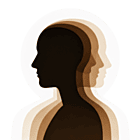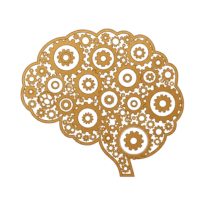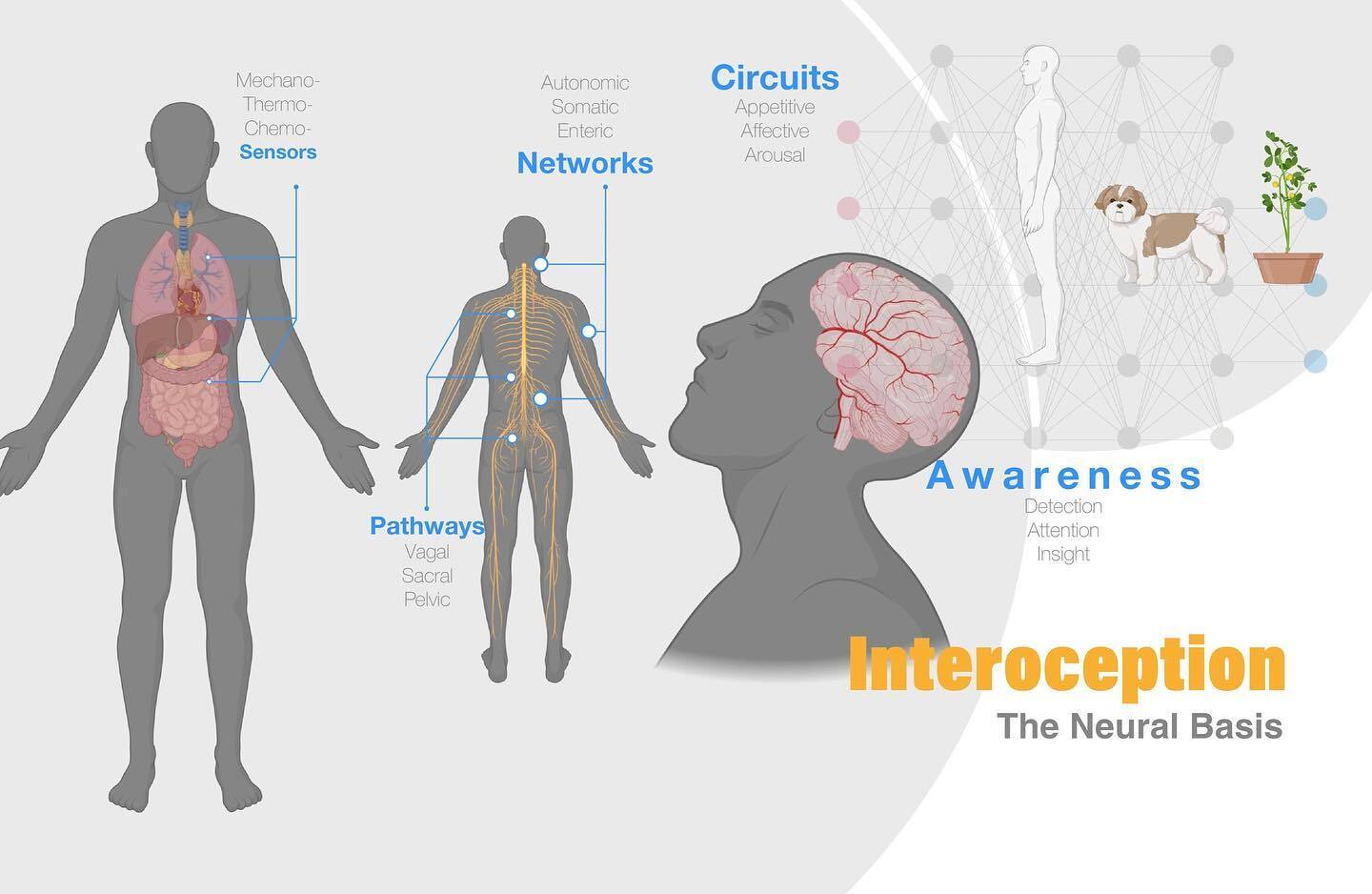TRANSFORMATIVE THERAPY FOR TEENS & ADULTS
A New Modality-
Limbic & Attachment Interoceptive Recalibration™
(LAIR™)
Image credit: Patterns in nerve cell firing. Okinawa Institute of Science and Technology.
The mental health field is facing a crossroads.
While traditional cognitive-based therapies have dominated treatment approaches for decades, groundbreaking neuroscience research reveals a fundamental truth: targeting the limbic system and its interoceptive pathways delivers faster, more sustainable results than cortex-focused talk therapy.
This paradigm shift isn't just about methodology—it's about recognizing where emotional wounds are actually stored and how to facilitate authentic healing.

Why The Old Ways Are Limited

Focus on Control
The human mind, while remarkable, is fundamentally flawed as a processing system for emotional trauma and regulation. Cognitive-based therapies assume that thoughts can reliably control emotions, but extensive research reveals critical limitations in this approach.
The energy required to control emotional responses leads many to fatigue, emotional brain fog, and overwhelm.
When stuck in this pattern, even the slightest challenge or disturbance can result in an exaggerated response. This often derails even our most sincere attempts to be calm and less reactive.

Biases
Provider biases significantly impact diagnosis and treatment decisions. They are rooted in cultural programming, educational indoctrination, systemic prejudices, and personal blind spots that operate below conscious awareness.
A comprehensive study examining implicit bias interventions found that while cognitive training might temporarily alter conscious attitudes, unconscious biases remain largely unchanged and "rebound" within days or weeks.
Research in cognitive bias modification reveals that attempting to change thoughts and beliefs often fails to create lasting change.

Slow Processing
The fundamental problem: the cortex analyzes information through pre-existing neural pathways carved by past experiences, trauma, and cultural programming. This process is slow and error prone.
When clients engage in talk therapy, they're essentially asking a compromised system to heal itself using the same flawed and sometimes trauma impaired processing that created their problems in the first place.
In addition to the inherent processing flaws, cognitive processing is much slower when compared to limbic pathways.


For mental health professionals, the results possible with the LAIR™ Protocol represents a tremendous opportunity. By integrating the advanced interoceptive approach of the LAIR™ Protocol, programs and practitioners can offer their clients faster, more effective healing that addresses the root cause of emotional dysregulation rather than the perpetual cycle of coping with and managing symptoms.

The Fastest Path to Lasting Results
Research demonstrates that our bottom-up methods produce faster neuroplastic changes because they engage the nervous system's rapid response and rapid learning pathways. When clients learn to work with their somatic signals, they're engaging with millions of years of evolutionary progress rather than against it. In fact, studies comparing cognitive-behavioral therapy with somatic approaches consistently show faster symptom reduction with body-based interventions.
This type of learning is a form of embodied learning. Studies consistently show that embodied, interoceptive approaches to emotional wellness create lasting transformation by allowing individuals to directly experience and reprocess emotions through the body's natural restorative pathways, bypassing the mental loops that often keep people stuck in cycles of emotional dysregulation.
Research also shows that anxiety, depression, PTSD and other emotional imbalances, are caused by a complex interplay of neuroplasticity, attachment patterns, deeply ingrained beliefs about self-worth, and the ability to form safe relationship bonds. At SOVRAN we offer you the opportunity to evolve beyond the reliance on medications with significant side effects, therapies that struggle to resolve root causes, and suppressing emotions with coping skills by activating your powerful, natural and easily accessible internal emotional balancing pathways.
The Science
Somatic and interoceptive experiences increase neuroplasticity markers, including BDNF, GDNF, and NGF production more effectively than cognitive training.
These factors support learning, memory, survival, growth and funciton of healthy brain cells.
Enhanced neuroplasticity translates to faster and more sustainable therapeutic gains.
Modern neuroscience also reveals that lasting emotional balance requires engaging the brain and body as an interconnected system.

Image credit: Firefly Somatics
Other Tools for Boosting Neuroplasticity
When our clients experience cortical blocks to leveraging interoceptive pathways (from depression, anxiety, and trauma), we may recommend a ketamine referral. Ketamine is an FDA approved medication for anesthesia that when used off-label with the LAIR™ Protocol for clients who are stuck, helps get faster results.
The evidence is clear: mental health treatment achieves superior outcomes when the limbic system is naturally targeted through interoception (feeling) rather than relying solely on thinking (cognitive analysis). Our innovative approach bypasses the inherent limitations and biases of thought-based processing while working directly with the body's innate ability to heal, and subconscious regulatory capacity. Because our clients learn through embodied exercises to work with their nervous system to restore emotional health, they are empowered, and their nervous systems naturally shift to a higher level of function.

We Aim For the Best Results Possible
Functional improvements are our goal, and we are poised to evolve with and continue to pioneer best practices for emotional wellness.
We Are Future Facing
The future of mental health lies not in more sophisticated talk therapy, but in reconnecting with the natural wisdom of the human design—where authentic healing has always occurred, and where lasting transformation awaits those willing to listen to what their nervous system is trying to tell them.
This paradigm shift from cortex-based to advanced limbic-focused intervention represents more than a change in technique—it's a return to treating human beings as the integrated mind-body systems we are, finally backed by the neuroscience to prove what somatic practitioners have known for centuries: the mind-body connection holds the keys to healing in ways the mind alone cannot access.
We Have A Robust Platform
Not only are we focused on getting the best results possible, we are also committed to a deeper understanding of how the brain heals. We are currently building a client and training database designed to monitor responses, standardize the approach, collect anonymous data, and help keep our practitioners up to date with the most effective and efficient methods in somatic and interoceptive processing. In this way, we can reach our goal of providing consistent results across our practitioner and client bases.
Our clinical director has years of research experience and understands the pitfalls of the design flaws prevalent in current mental health research. By starting with a standardized approach, experiential training, and centralized data collection, we are poised to deliver optimal results now, and in the future.
Experienced Team
The innovator of the LAIR™ Protocol has been refining the technique over the past five years, and testing it with all kinds of diagnoses to validate it's effectiveness. It has been developed to not only address the emotional imbalances that are the most common focus of therapy, but the more difficult to resolve patterns that involve self-beliefs, and attachment wounds. The LAIR™ Protocol is exclusively available from SOVRAN Solutions.


What if your memories are buried, and you can't recall them?
No problem.
- Buried memories that can't be consciously recalled impact many aspects your life—shaping your decisions, influencing your self-worth, and limiting your potential.
- These deep seated memories may be linked to fear of rejection, or feelings of shame, guilt, or unworthiness, for example, and drive choices that trap you in cycles of broken relationships and missed opportunities.
- Because they can't be directly remembered, it is impossible to access them via talk based interventions, but for resilience and enduring results, it's essential they are addressed.
- Hidden wounds can be accessed and healed using interoceptive pathways.
- The LAIR™ Protocol helps clients heal the trauma wounded parts of the brain impacted by buried memories, unlocking rapid transformation and untapped potential—creating lasting change that willpower and logic alone can't achieve.
- This is "the work" people idealize but struggle to complete on their own due to buried memories, blocks, blind spots, inexperience, and limiting beliefs.
The Experience

In a private, quiet, setting of their choice, we guide clients through a series of interoceptive exercises, breathwork techniques, and movements that support recalibrating their emotions and attachment styles while building resilience—via an encrypted virtual portal.
The experience may cover memories that have resulted in emotional and mental blocks, and dissociation, as well as powerful feelings of internal peace and calm.
If clinically indicated, clients may be prescribed low dose oral or nasal ketamine to increase neuroplasticity and overcoming blocks.
An eye mask and noise cancelling earbuds or earphones are recommended.
